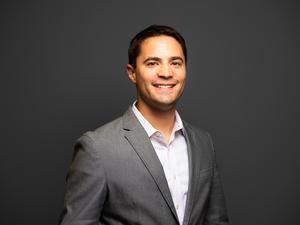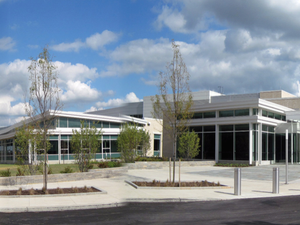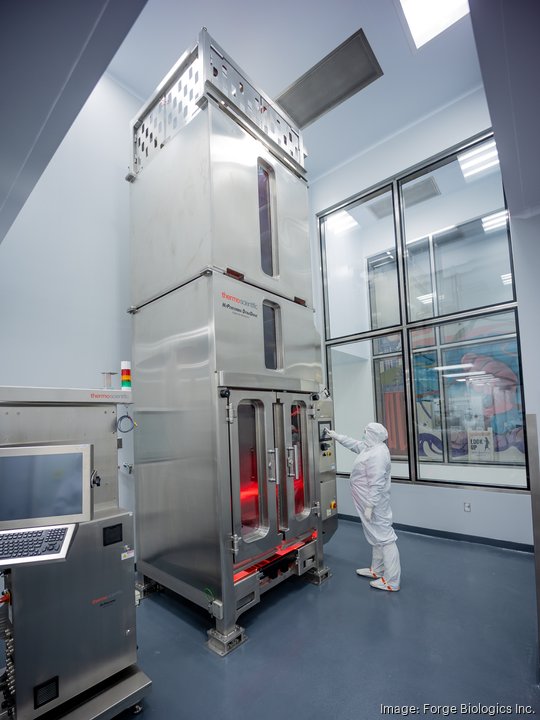
Forge Biologics Inc. has expanded its Grove City headquarters – and reported promising early results from a dozen infants treated with the company's own gene therapy for a rare fatal condition.
"The babies have been amazing," co-founder and CEO Timothy Miller said.
Revenue grew by "multiples" in 2022, its second full year of biotech manufacturing, and a "large jump" is projected for this year, executives said. The amount is not disclosed.
The startup has a path to profitability, Miller said.
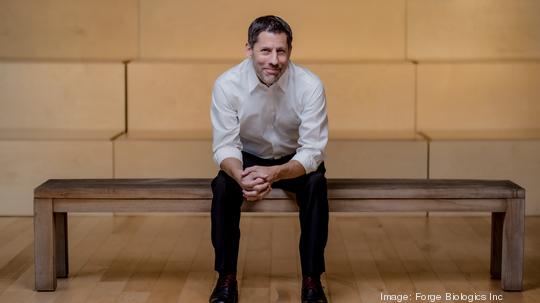
Founded in 2020 by biotech veterans, including from successfully acquired gene therapy companies, Forge develops proprietary treatments, typically an expensive process. But it already makes money through manufacturing, filling a critical shortage in the growing regenerative medicine industry.
"There are more competitors coming online, but we’re trying to make sure we have enough offerings and enough level of expertise across the board that we differentiate ourselves," co-founder and COO Jaysson Eicholtz said in a joint interview.
Construction recently wrapped up on a 27,000-square-foot expansion that brought the facility to just over 200,000 square feet. The project entailed ripping out a front wall of the former warehouse to build a two-story glass office – "create the creature comfort spaces we need to have 400, 500 people," he said.
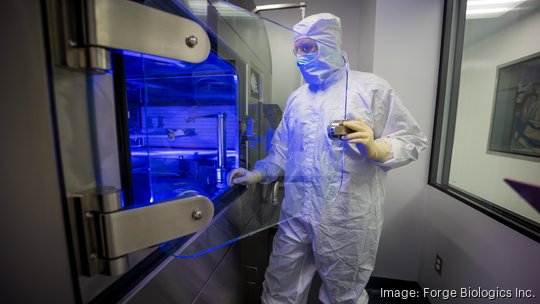
Forge recently surpassed 300 employees and is hiring, in contrast to venture-backed companies cutting jobs around the globe.
And while employers everywhere struggle with labor shortages, Forge so far received 700 applications for 20 summer internship slots.
"People want to join Forge," Miller said. "We get to hire a lot of the people with the top-tier experience in this space."
Last year, as the VC market tightened, Forge landed an $80 million credit facility toward construction and raised $90 million in venture capital in a round co-led by initial investor Drive Capital LLC.
Easing an industry bottleneck
Forge's facility is among the largest dedicated to making the type of non-disease-causing virus used most often to deliver a genetic payload. It has 20 "clean room" production suites and room inside the building to add many more, Eicholtz said. The goal is to not to leave clients waiting, but also not have idle capacity.
The lead contractor was Skanska USA, which specializes in building clean rooms and laboratory space for hospitals, universities and pharmaceutical companies.
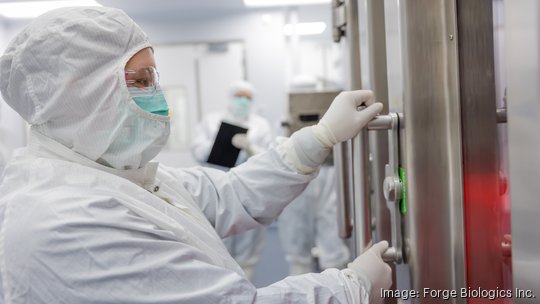
Forge's customers include large public pharmaceutical companies, universities, private startups and small family foundations backing research into rare genetic diseases. Few disclose their names, but in January California-based Oculogenex announced it chose Forge to produce its experimental treatment to stop macular degeneration.
The actual manufacturing takes place in bioreactors, which circulate liquid growth media at optimal temperatures so cells and viruses can grow. Forge's bioreactors range from 1-liter capacity for the very earliest process development to 5,000 liters, enough for commercial production and the only two at that size operating in the industry.
"Our whole story is to be a partner for the life of the (gene therapy development) program," Eicholtz said. "They can feel good. They can stick with as they continue to grow."
Fighting a fatal genetic condition
Those growing programs include Forge's own therapy, advancing through the regulatory process in both the U.S. and Europe. Each region has granted designations that help speed the process for treatments for rare diseases.
"They’ve acknowledged this is a promising treatment," Miller said.
The candidate therapy, for now labeled FBX-101, recently started a second trial in infants with Krabbe disease at the University of Michigan Medical Center. The disease is usually fatal by age 2 because the babies can't make a crucial enzyme, so a toxic metabolism byproduct attacks the protective coating on nerves throughout the body, including the brain and spine.
Because the condition is so severe, this is one of the uncommon studies in which the FDA says researchers can treat every subject, and use comparisons to past patients with the disease as a control group. According to the NIH website, the exception is granted when it would be unethical to give half the patients a placebo, dooming them to disease progression and death.
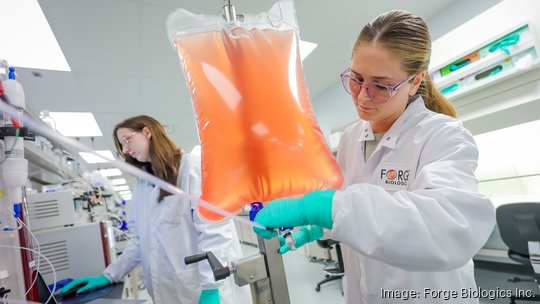
Usually there are three phases of clinical trials before a drug is approved. This one is in a program that combines the first two phases to determine if it is safe and effective. There are two groups: A dozen treated starting in November 2021 and the second dozen that just started. Babies are observed for two years after the treatment.
In some cases, the FDA can allow skipping the third phase.
Miller said he can't make projections on how long the regulatory process will take. Before final approval, Forge would need to demonstrate to the agency that the processes it proposes for commercial manufacturing produce safe, consistent batches.
Dr. Maria Escolar, Forge chief medical officer, reported preliminary results at a scientific conference for the first group of infants treated. Their bodies are making the necessary enzyme, and no serious side effects arose.
“All patients to date have exhibited normal motor function and brain development six and 12 months post-FBX-101 administration, which would not be anticipated in the absence of systemic gene transfer of the (affected) gene," Escolar said in a news release.

